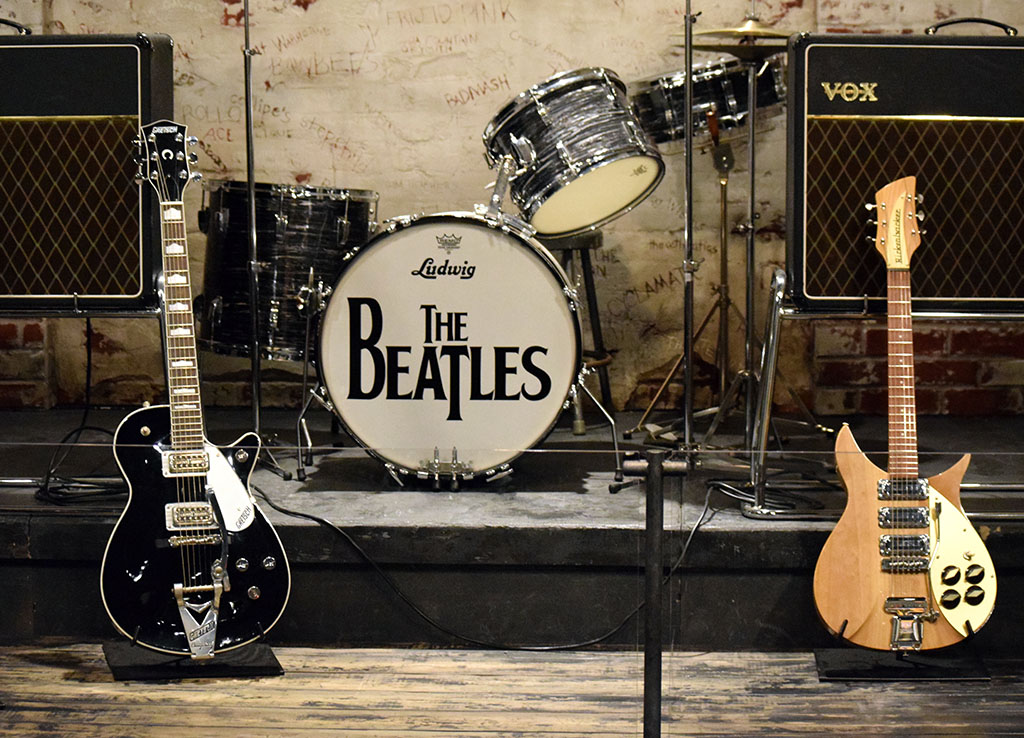
People have always been fascinated by the end of the world; whether it’s books, films or television shows, it seems we can’t get enough of mass extinction events, and there have been more apocalyptical films made in the last ten years than in the previous twenty.
But buried deep inside a mountain in Northern Norway, there are very real plans in place to preserve important artefacts in the event of a global disaster. The Arctic World Archive has a selection of historical documents, archives and artwork, and just down the road the Global Seed Vault stores over one million seed samples.
Inspired by this, entrepreneur Luke Jenkinson has been looking at ways to preserve music securely. He came up with the idea of a Global Music Vault after hearing about a fire at the Universal Studios warehouse in 2008, in which approximately 500 thousand master tapes were destroyed, including work belonging to Joni Mitchell, Elton John, R.E.M. and Sting.
He’s part of a team that has developed a silica glass square that can store digital copies of music and is resistant to extreme temperatures, water damage and electromagnetic pulses. This solves the problem of how music will be stored, but there’s still the issue of which music they’ll store, and who gets to decide.
Here at The Insurance Emporium, it got us thinking about which song we’d like to save in a global music vault; would we want to save the most popular songs or songs that mean something to us personally? Should we have a traditional song from every country or songs by the most famous artists? Here’s what we came up with:
BEST-SELLING ARTISTS OF ALL TIME
We all have our favourite musical artists so these discussions can cause the occasional light-hearted argument, but there’s no arguing with the facts and it won’t surprise anyone to hear that The Beatles are the best-selling artists of all time. They’re responsible for introducing British rock and pop music to the US, as well as writing one the most covered songs in history, ‘Yesterday’.
(And here’s a fun end-of-the-world-themed fact, they each have an asteroid named after them!)
The Beatles are closely followed by Elvis, Drake, Michael Jackson, Rihanna and Madonna.

BEST-SELLING SONGS OF ALL TIME
Looking back at the best-selling songs of each decade can tell us a lot about how music has changed. The number one best-selling song is White Christmas by Bing Crosby, which was released in 1942. It’s still played regularly on radio stations and used in film soundtracks. Further down the list is Elton Johns Candle in the Wind, In the Summertime by Mungo Jerry, Mariah Carey’s All I Want for Christmas (one of the most streamed Christmas songs in the UK) and, of course, the Beatles.
MOST POPULAR MUSIC GENRES OF ALL TIME
Pop music tops this list, with 64% of consumers listening to this genre, although technically ‘Pop’ music could refer to music that is popular at any particular time; for example, opera was the most popular music category in the early 1900s. With this in mind, we should probably include a song from each music genre, including rock, dance/electronic, Hip Hop, heavy metal; blues, jazz, folk, soul, blues and indigenous music.
SONGS THAT CHANGED THE WORLD
While it’s not really possible for an actual song to change the world, certain songs can sum up the feelings of the time, bringing people together and inspiring them. It’s hard to pin down one song that’s achieved this as different music means different things to different people, but here are a few that stand out.
A Change is Gonna Come, was written by Sam Cooke in support of the civil rights movement in the US in the 1960s; capturing the oppression of the time while still talking about hope. Also on the list is Strange Fruit, released in 1939 by Billie Holiday, it’s a protest song about racial violence, in particular the horrors of lynching. Based on a poem by Abel Meeropol, it was named song of the century in 1999 by Time magazine.
We’d also add, Fight the Power by Public Enemy, Redemption Song by Bob Marley, God Save the Queen by the Sex Pistols and John Lennon’s Imagine.

SONGS ABOUT THE END OF THE WORLD
No time capsule would be complete without a bit of dark humour; if you can’t have fun at the end of the world, when can you? Of course, the song at the top of our list is ‘It’s the End of the World as we Know It (And I Feel Fine)’ by R.E.M. Released in 1987, it’s a surprisingly jaunty song considering the subject matter and sales rocketed from 3,000 to 19,000 in the run-up to the predicted Mayan Apocalypse in December 2012.
Prince released ‘1999’ in 1982, another upbeat song about a dark topic, encouraging people to keep dancing and having a good time, despite the threat of a nuclear war bringing about the end of the world at midnight on the final day of 1999. We would also include, Every Day is Like Sunday, by Morrissey, London Calling by The Clash, Two Tribes by Frankie Goes to Hollywood, and of course, Final Countdown by Europe.
CONCLUSION
In an increasingly digital age where we can store thousands of songs on our phones and listen to our favourite albums at the touch of a button, we’ve moved from owning music to just being able to access music, and it’s easy to think that this music will last forever. But digital music can still deteriorate and while it might not be as important to the survival of the human race as food, say, or technology or medical knowledge, music is still a vital part of what’s shaped us as a society.
If you feel passionate about music and want to preserve your equipment; whether that’s a record/CD collection, or a musical instrument with all the accompanying accessories, then looking at music insurance could be the smart thing to do. Take a look at our website for a free, no-strings quote. We may not be able to stop the end of the world, but we can certainly give you the protection you need until then.
All content provided on this blog is for informational purposes only. We make no representations as to the accuracy or completeness of any information on this site or found by following any link on this site. We will not be liable for any errors or omissions in this information nor for the availability of this information. We will not be liable for any loss, injury, or damage arising from the display or use of this information. This policy is subject to change at any time.
We offer a variety of cover levels, so please check the policy cover suits your needs before purchasing. For your protection, please ensure you read the Insurance Product Information Document (IPID) and policy wording, for information on policy exclusions and limitations.


